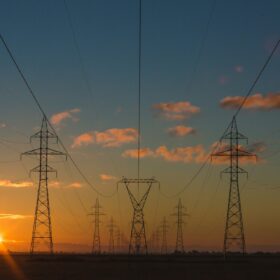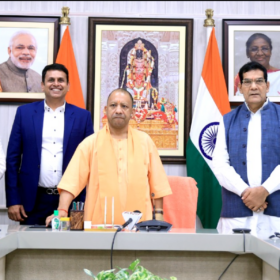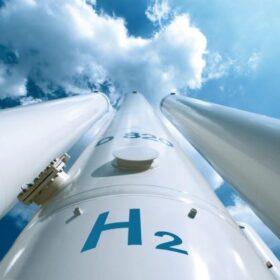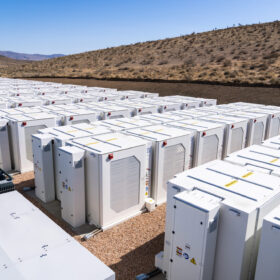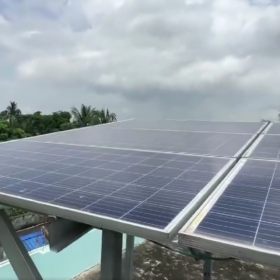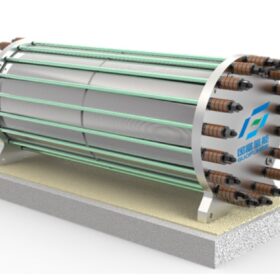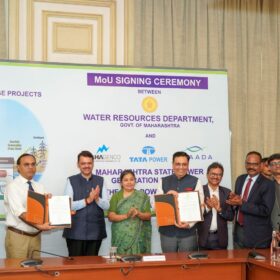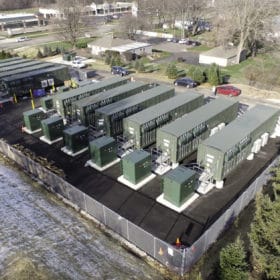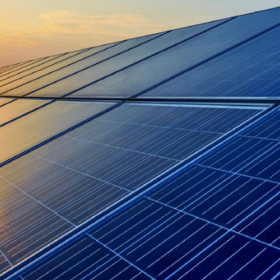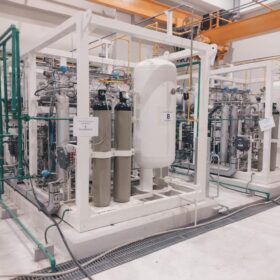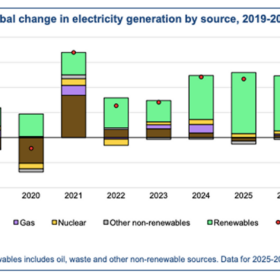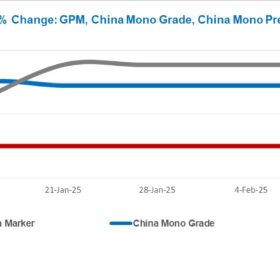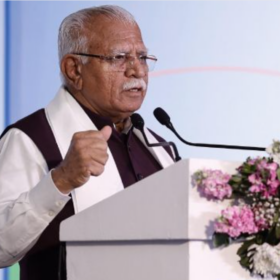Battery storage costs must fall by 15% per year to avoid new coal capacity additions after 2030 in India
If battery energy storage costs fall 15% every year on an average, it would enable India to potentially limit its coal capacity to the 14th National Electricity Plan projection of 260 GW by 2032, says a new report by global think tank Ember and TERI.
PV systems can now support grid as fossil fuels decline, says IEA-PVPS
A new report by the International Energy Agency’s Photovoltaics Power Systems Programme (IEA-PVPS) says that existing PV systems have the technical capabilities to provide various frequency-related grid services.
Uttar Pradesh chief minister inaugurates Avaada Group’s 70 MW solar project in Banda
Avaada Group is also setting up 2.19 GW of pumped storage projects in Sonbhadra and Mirzapur districts, along with around 1 GW of solar power projects in Jalaun, Chitrakoot, and Lalitpur districts of Uttar Pradesh, with an investment of around INR 20,000 crore.
Gensol Engineering, Matrix Gas consortium wins 237 MW hydrogen electrolyser manufacturing capacity under PLI Scheme
Gensol Engineering Ltd, in collaboration with Matrix Gas and Renewables, has emerged as a winner bidder for 237 MW of annual electrolyzer manufacturing capacity under the government’s production-linked incentive (PLI) scheme. With this, it has secured a cumulative 300 MW capacity under the PLI tender launched by Solar Energy Corp. of India (SECI), including 63 MW awarded in the first round.
India’s renewable energy storage capacity to surge 6 GW by fiscal 2028
Ratings agency Crisil expects India’s renewable energy (RE) storage capacity to surge 6 GW by fiscal 2028 driven by a healthy pipeline and government push towards renewables boosting adoption.
Distributed or utility-scale solar?
The choice between distributed and utility-scale solar often comes down to balancing these benefits based on the specific context, goals, and constraints of a project or region. In the Indian context, a balanced approach that leverages the strengths of both models is essential.
The Hydrogen Stream: Advait signs alkaline electrolyzer deal with China’s Guofu Hydrogen
Advait Infratech has signed a technology licensing agreement to gain access to Guofu Hydrogen Energy’s technology for alkaline electrolyzer production.
Tata Power signs MoU for 2.8 GW pumped hydro storage in Maharashtra
Tata Power has signed an agreement with the state government of Maharashtra to develop two large pumped hydro storage projects with a combined capacity of 2.8 GW in the state.
Uttar Pradesh launches 1.2 GWh battery storage tender
Uttar Pradesh Power Corp. Ltd (UPPCL) has invited bids from developers to set up 1,200 MWh (300 MW x 4 hours) of standalone battery energy storage systems for on-demand use during peak and off-peak hours. It will enter into a battery energy storage purchase agreement with the successful developers.
Advait Infratech net profit rises 300% yoy in Q1
Advait Infratech has reported a net profit (profit after tax) of INR 583.16 lakh in the April-May-June quarter of FY 2024-25, around 300% increase over INR 146.48 lakh profit for the corresponding period of the last fiscal.

